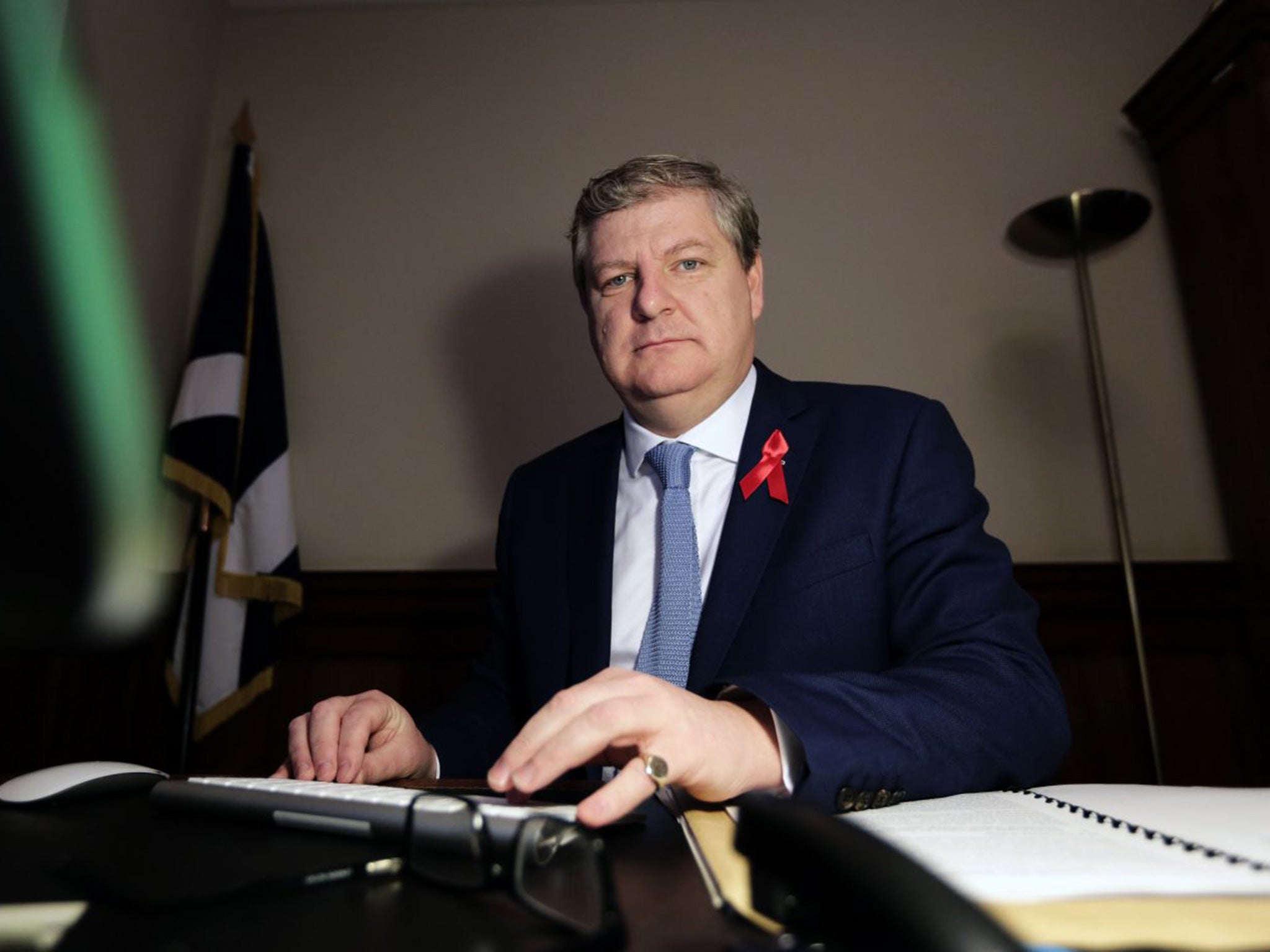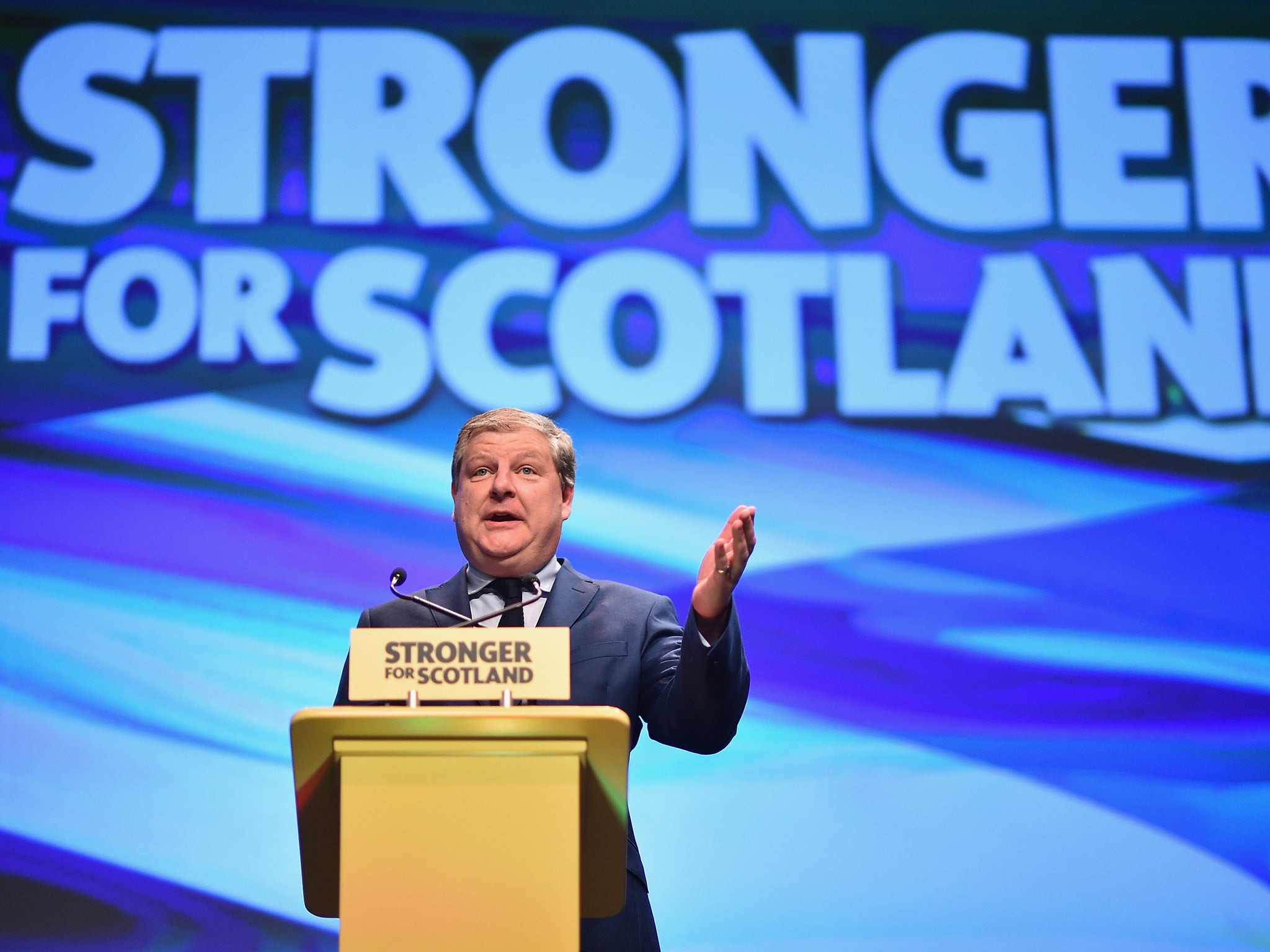Angus Robertson: SNP Westminster leader on being the new star of Prime Minister's Questions
Meet the man who has taken fullest advantage as the leader of the SNP in Westminster

Your support helps us to tell the story
This election is still a dead heat, according to most polls. In a fight with such wafer-thin margins, we need reporters on the ground talking to the people Trump and Harris are courting. Your support allows us to keep sending journalists to the story.
The Independent is trusted by 27 million Americans from across the entire political spectrum every month. Unlike many other quality news outlets, we choose not to lock you out of our reporting and analysis with paywalls. But quality journalism must still be paid for.
Help us keep bring these critical stories to light. Your support makes all the difference.
By launching his new, more downbeat, democratic approach to Prime Minister’s Questions, Jeremy Corbyn has created an opportunity. And the man who has taken fullest advantage is the leader of the Scottish National Party in Westminster, Angus Robertson, who, on matters of war and peace at least, has become the leader of the Opposition. Last week, again, it was Robertson’s finely calibrated questioning on the conflict in Syria that most often prompted an observer’s “Answer that one, Prime Minister.”
As a former journalist, he knows the value of being unembarrassed to repeat a question, so on 25 November he dusted down one from a month earlier, pointing out that the UK had spent 13 times more on bombing Libya than in rebuilding it, and asking how much had been earmarked for the reconstruction of Syria. He also asked whose ground troops would be securing Raqqa.
On 26 November, following Cameron’s statement on Syria, his powerful probing was deployed once more, when he mildly pointed out that the PM had failed to answer his questions and “I’d like to repeat them today”. It was hardly Cicero, but it was immensely effective, the distilled thrusts of someone who clearly cares and has read himself thoroughly into his subject.
Robertson was born in Wimbledon, south-west London, in 1969, the son of a Scottish engineer father and a German nurse mother, and brought up in Edinburgh. He became an MP in 2001, like Cameron, with whom he has good personal relations, but the public/private distinction is clearly drawn. He acknowledges what a “massively intractable” problem Syria is (“I know David Cameron will not be taking these things lightly”), however there is a “but”. Robertson remains unimpressed by Cameron’s attempt at a fully formed plan. Besides, he says, “there’s not a lack of bombing in Syria. The French are bombing Raqqa, the Americans are operating fast jets and drones and the Russians are attacking different groups on the ground.”

He was never a likely convert to the cause. He has been on the case too long, and believes the Government hasn’t lived up to its rhetoric of talking loftily about X or Y globetrotting on behalf of the UK, sorting out the world’s problems. “‘My colleague is talking to so-and-so in Brussels’… You hear that regularly… ‘Britain is the only country doing this and that.’” But if that were all true, he says, more people would know, for example, that Britain currently holds the chairmanship of the UN Security Council, a position of great potential influence.
“Britain has not been exactly forward leaning on Syria,” he says. “Two years ago it was suggested we should bomb the opponents of Daesh. Right. Wouldn’t that have helped them?
“There’s been a missed opportunity by the UK in doing something proactive on the international stage. I’m seeing a lot of President Hollande, Merkel, Putin, Obama, but where’s the UK in all this? Rather than reacting to [the failure to persuade the Commons to back the bombing of Assad two years ago] by being chastened and feeling we’ve lost face … if they’d come out on the front foot diplomatically and made an effort, working in the UN, in the EU, and so on, that would have been preferable. We might have seen the Vienna-type process start earlier and having made some more progress than it has now. In the past the UK has used its seat at the UN on the Security Council to good effect. I don’t think this is a good example.”
So what should happen now? “You might argue that if they were really serious, you might go for a Chapter Seven [which would explicitly license bombing],” but he suggests the PM feels he does not have the global clout. Robertson eschews the word “gesture” but says: “Perhaps it is easier sending a squadron or two of the RAF to do something, which no doubt will be justified as ‘crucial’ and ‘absolutely essential’ in dealing with direct security threats to the UK.”
Robertson affects not to want to give Labour advice, but you sense he can’t believe his luck. “I have an opportunity every week to ask two questions [of the Prime Minister], and I put a lot of thought into what are the key questions of the week, and I think in normal circumstances you’d expect the leader of the Labour Party to raise those important questions. Not once since the new leadership took over have I found my intended questions or subject of questioning preceded by the Labour Party.”
This, surely, is a golden age for the SNP, notwithstanding the referendum result last year. It has 54 MPs in Westminster and rules the roost in Scotland. Could it not stay popular by glibly opposing everything in London and being more leftist and anti-English than its opponents in Scotland? He strongly resists any charge of anti-Englishness –“Show me an example. I’m not having it” – and says of his opponents: “Do I wish there was an effective opposition in Scotland as we are trying to do in Westminster? Then yes. But that is their business. It’s up to them to come up with good ideas and be effective politicians and to be more electorally challenging.” That, certainly, is what Angus Robertson is.
Subscribe to Independent Premium to bookmark this article
Want to bookmark your favourite articles and stories to read or reference later? Start your Independent Premium subscription today.
Join our commenting forum
Join thought-provoking conversations, follow other Independent readers and see their replies
Comments